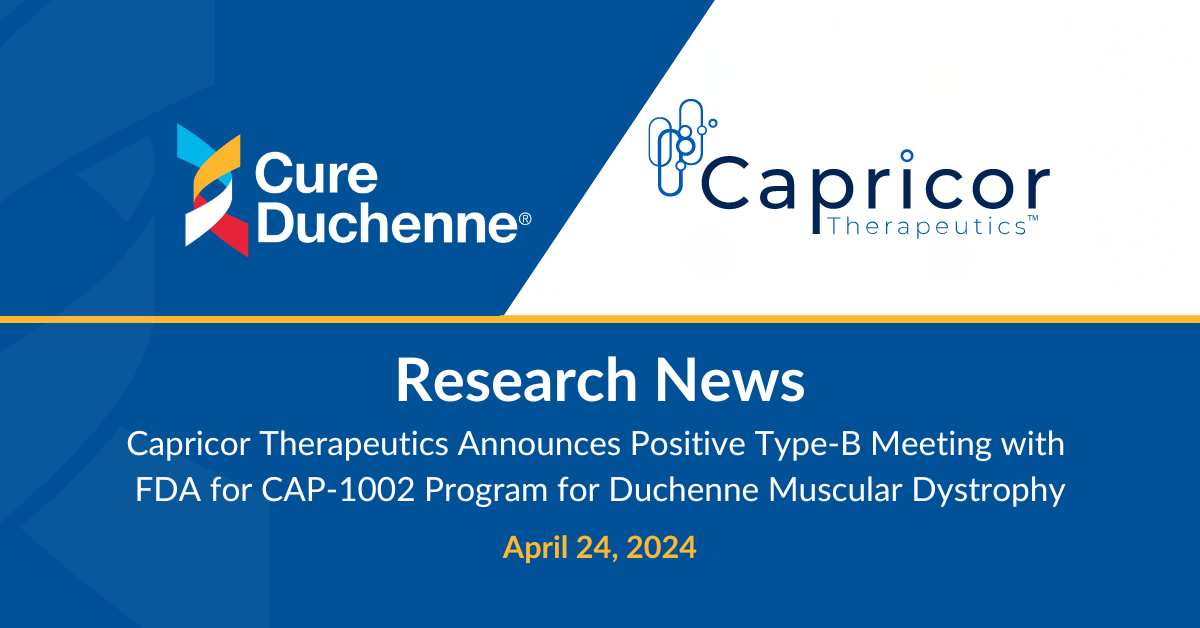Better Designed Clinical Trials Now
As a parent of a son with Duchenne I have been frustrated that the data presented to the FDA does not match the patient experience. I personally know so many patients who have been in recent clinical trials that are doing much better than expected and are seeing a slower progression of their disease than other patients who are not the experimental treatments.
The first clinical trials were designed years ago before we really understood the natural history of the disease. They were designed before industry had the necessary tools and knowledge of the patient population and have not been able to clearly demonstrate the separation between treated groups and the placebo arms. Almost two years ago, after a frustrating FDA workshop, Dr. Susan Ward was brainstorming with me and she literally wrote the model for a new way to apply statistical analysis to Duchenne natural history databases. She was sure that the reason the FDA was not seeing what parents and physicians were seeing was because of the variability of the progression of the disease in different patients.
 To help solve this challenge, CureDuchenne helped pioneer the Collaborative Trajectory Analysis Project (cTAP), a public-private partnership that is the first of its kind in Duchenne. cTAP is a consortium that is unifying leaders in Duchenne muscular dystrophy research with leaders in health outcomes research, and teaming up with drug developers and nonprofit organizations to unleash the power of collaborative data science on clinical trial design, potentially helping the entire community to bring effective new therapies to patients more quickly.
To help solve this challenge, CureDuchenne helped pioneer the Collaborative Trajectory Analysis Project (cTAP), a public-private partnership that is the first of its kind in Duchenne. cTAP is a consortium that is unifying leaders in Duchenne muscular dystrophy research with leaders in health outcomes research, and teaming up with drug developers and nonprofit organizations to unleash the power of collaborative data science on clinical trial design, potentially helping the entire community to bring effective new therapies to patients more quickly.
CureDuchenne is proud to have provided leadership and seed money to help bring this vision to life and launch this innovative collaboration with Dr. Susan Ward and James Signorovitch from Analysis Group. We are grateful for clinicians, the registries, biotech and pharmaceutical companies coming together for the greater good of the Duchenne community. Dr. Michael Kelly, CureDuchenne’s Chief Scientific Advisor, helped champion cTAP and was instrumental in helping to form the collaboration.
cTAP is enabling leading clinical experts to solve the most critical problems in Duchenne drug development, now. Curating the largest and still growing natural history clinical database in the Duchenne community, cTAP develops solutions through the application of advanced data science at the requisite scale and urgency necessary to impact clinical trial design and analysis, near-term.
Two new research studies categorizing and predicting disease progression have recently been published by cTAP. Both studies have important implications for the design of effective clinical trials in Duchenne.
Nathalie Goemans, Marleen vanden Hauwe, James Signorovitch, Elyse Swallow, Jinlin Song, for the Collaborative Trajectory Analysis Project (cTAP). PLoS One, 2016, 0164684
Categorizing natural history trajectories of ambulatory function measured by the 6-minute walk distance in patients with Duchenne muscular dystrophy.
Eugenio Mercuri, James Edward Signorovitch, Elyse Swallow, Jinlin Song, and Susan J. Ward for the Trajectory Analysis Project Collaboration (cTAP) and the DMD Italian group. Neuromuscular Disorders 26 (2016) 576–583
Knowing what good clinical trial design means to the patient community is what drew CureDuchenne to fund this first of its kind collaboration. We want clinical trials to be designed to show the results the regulators need to approve more drugs for the treatment of Duchenne. cTAP is helping to provide the necessary tools to help design the trials to help patients sooner.
We want to change the history of this disease. And, at CureDuchenne, we know we need to innovate to find more effective tools, therapies and care for all of those affected with Duchenne.




